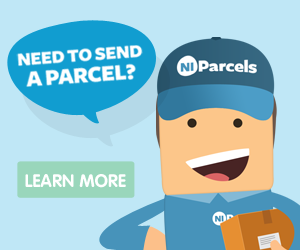
There are so many reasons why you might consider setting up an e-commerce business. Firstly, you can increase your reach to target more customers and, therefore, boost your sales.
Not only that, but as a business model, it is very scalable, you can offer more shipping and payment options to customers, and you’ll be presented with lots of exciting marketing opportunities.
It’s easy to see why so many businesses have turned to the internet to sell their goods or services, but despite its promise, a huge percentage of these businesses will fail.
In fact, a study found that 90% of e-commerce businesses will fail within the first three months of launching and that there are common reasons why. We will look at each of these in more detail below.
And understanding the reasons that so many e-commerce businesses fail can help you to mitigate the risks and ensure your business is a success.
Read on to find out more.
Poor online marketing
One of the biggest reasons that so many e-commerce businesses fail is that they don’t make the most of online marketing platforms. In fact, according to the earlier study, this led to the demise of over one-third (37%) of e-commerce businesses.
A strong online marketing strategy is the key to success. After all, how can you expect people to buy from you if they don’t know you exist? Therefore, every e-commerce brand needs to invest in an online marketing strategy.
But this doesn’t have to mean spending a fortune. There are plenty of budget-friendly and even free tools that you can use to get a strong strategy in place.
Lack of online visibility
Similar to the above, if you lack online visibility, you’re going to struggle to attract customers to your e-commerce website. Visibility is the overall online presence of your brand beyond your website, so this could be social media, advertising, search rankings and other online content.
Businesses with little to no online presence (outside their website) are going to find it much harder to drive traffic to their pages and build brand recognition. Not only this, but these brands can be seen as less trustworthy and rank lower on search engine results pages (SERPs).
In order to combat this and ensure your website doesn’t get lost in cyberspace, a strong search engine optimisation (SEO) strategy is key. So is creating strong online content and ensuring a social media presence.
All of this can boost your online presence and trustworthiness, increasing your online visibility.
Running out of cash
One of the greatest parts about e-commerce is that there is plenty of budget-friendly, even free, tools that budding entrepreneurs can use to get their business up and running. The problem is, no business can function with zero capital, and too many find themselves investing in their new idea, only to run out of cash after just a few months.
It’s important to remember that it might take you a few months to establish your business, build a customer base and encourage brand loyalty. Therefore, it’s important to have enough money behind you to keep you going through the first tougher months while you’re starting out.
Issues with pricing
When you first start out on your e-commerce journey, knowing what to charge can be tricky. Of course, you can do some market research and try to find out the industry standard, but you need to make sure your prices are competitive while reflecting your offerings and ensuring you turn a profit.
If you get your pricing wrong in the first instance, you might find that you either don’t make enough sales or that you don’t make enough profit to stay afloat. This is a fine line to tread, but one you need to get right in order to be successful.
Fierce competition
With so many e-commerce businesses already up and running, competition to secure customers can be really tough. Today’s consumers are happy to shop around, compare prices and read reviews before making a purchase.
Therefore, a business has to go above and beyond to make a sale, and this can be tricky in the early stages. This can be even harder in popular niches, with thousands of other brands selling similar goods.
Then you have big-name retailers like Amazon who can often offer similar products at lower prices; all topped off with next-day delivery. This competition can be too much for some and lead the business to fail, so it’s imperative you find and utilise your USP.
Little to no market for products or services
As we’ve said above, competition in the e-commerce space can be fierce, so it’s important that you don’t choose a product or niche that is already saturated. That being said, you don’t want to go too far the other way, either.
The aforementioned study found that a third (35%) of businesses start up an online enterprise despite there being little to no market for their goods or services. If there is no target audience and no need for your offering, who are you selling to?
This is a surefire way for your business to go under quickly, so it’s important to choose products or services with existing demand.
Lack of customer service
Today’s consumers expect a certain experience from brands, and in particular, they expect a high standard of customer service.
Having recently started an e-commerce business, too many people are unable to provide the answers and support that customers need, thus costing themselves a lot of sales. There could be several reasons for this, either lack of time, no staff or no awareness of the importance of customer service.
Whatever the case may be, answering customer queries in a timely manner and ensuring they can find FAQs and other helpful content is so important.
No clear return policy
Finally, it’s understandable that you don’t want to think about customers sending your goods back, but that is a reality of the world we live in.
Consumers want to know that they can easily return goods either to be swapped or for a refund. If your e-commerce website doesn’t clearly explain your returns policy, they are unlikely to risk spending their money with you.
That is why it is vital to have a clear returns policy displayed on the website and to make it as easy as possible for customers to return unwanted or faulty items.





